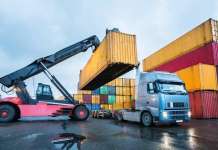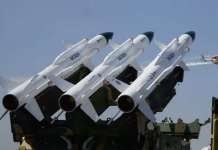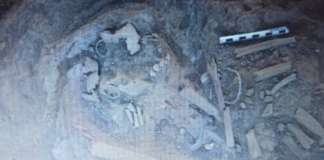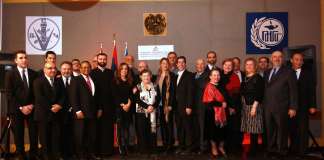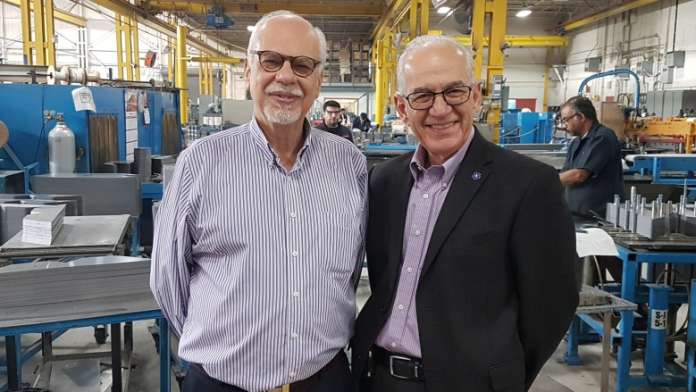
Rex Power Magnetics has hired 43 Syrian-Armenians
Only a year and a half after arriving in Canada, Levon Markarian feels at home on the factory floor of Rex Power Magnetics. In Syria, Markarian owned a small tool and die factory. In Toronto, he’s building electrical transformers and rebuilding his life at the Rex factory in Vaughan.
The company, with almost 300 employees, pursued an aggressive expansion plan in 2016, increasing sales by ten per cent to $60 million. The expansion was based on sound business practices, says Levon Hasserjian, one of the plant co-owners with his brother, Simon, but the goal was not growth for its own sake.
Instead, it was primarily to create new jobs for the wave of refugees arriving from Syria.
Betrayals from the battlefield
In the war zone in Aleppo, Markarian’s factory was on the front line and betrayals were commonplace. Markarian says one of his former customers who’d joined the militants’ side took over the factory, forcing Markarian back into the plant to finish a production line begun when the war broke out. It was the price Markarian had to pay for safe return to his family on the other side of Aleppo.
On the floor of Rex Power Magnetics, Markarian has no plans to start another company of his own.
“Why plan tomorrow? Here is different,” says Markarian. “Because you don’t have all the responsibility on your shoulders — to leave. Here, only you work and go home. Next day is new.”

For the past ten years, Rex Power Magnetics has worked with COSTI, Toronto’s biggest immigrant settlement agency, employing newcomers from around the world — from the Phillippines and Vietnam to India, Pakistan and Sri Lanka, and now from Syria.
“I don’t know another company that’s come through at this level,” says Mario Calla, executive director of COSTI.
The most recent hires are Syrian-Armenians, privately-sponsored by Toronto’s close-knit Armenian community which has taken in thousands of refugees.
A model for Canadian businesses
For COSTI, the partnership with Rex stands as a model for other Canadian businesses.
“Rex Power is a company that has adapted to the reality of newcomers and it pays off really well for them,” says Calla.
Like many of their latest hires, the Hasserjian brothers grew up in Aleppo. Their family were survivors of what Canada and a number of other countries recognize as the Armenian genocide. It’s estimated that 1.5 million Armenians, many of whom were marched into the Syrian desert by the government of the former Ottoman Empire, died.
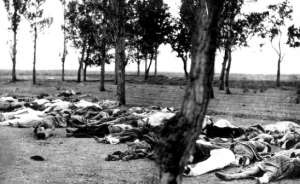
Some survivors made it to Aleppo, a city Simon recalls as a welcoming, tolerant place.
“I remember the churches were next to the mosques. On religious holidays, when it was a Christian holiday, all the Muslim shopkeepers would close their shops and vice-versa.”
‘We never looked at them as refugees’
Half a kilometre away was a refugee camp filled with Armenian children. The Hasserjian family had their own house but the brothers often visited their playmates in the refugee camp.
“We never looked at them as refugees,” adds brother Levon. “Just people that lived in poorer conditions.”
For the Hasserjian family, education was a priority. Entry into Syrian universities was expensive and restricted so when Simon was 19, and Levon only 16, their parents sent them to Canada to join their older sister in Toronto. Both brothers studied engineering at the University of Toronto — Simon, electrical engineering, and Levon, mechanical engineering.
Today, the house where they grew up in Aleppo is gone — demolished in the fighting — as are the apartment buildings that housed the Syrian newcomers now working on the factory floor in Vaughan.
Chasing more sales
The brothers’ goal for 2017 is to chase down another five per cent increase in sales and generate at least another 15 positions for refugees.
“Not just Armenian-Syrians,” says Simon. “We’d like to hire other Syrian refugees too” with the right skill set.

As part of the strategy to generate extra jobs, the brothers reduced overtime for their regular workforce.
“Our employees are part of how this company runs,” says Levon. “So OK, we’ll make changes to accommodate this path of growth and accommodate more employment.”
In Aleppo, Vrej Adjoydan was a graphic designer and accountant, while at Rex he works on the line, wrapping coils of aluminum and copper around the steel cores of electrical transformers. Like other Syrian co-workers, he feels lucky to have escaped with his life. The graphic company where he worked was looted by fighters a few days before he escaped. He still carries a sniper’s bullet that just missed his head.
Houri Saraidarion, on the other hand, studied electrical engineering in Syria, and at Rex, she landed her first job out of university as an electrical engineer in her chosen field.
Simon, her new boss, says, “even from the first few minutes in the interview, you could tell she was going to be good.”
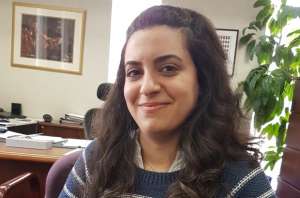
At the plant, workers build electrical transformers to convert energy from one current to another, powering condos, hospitals and factories across North America — an apt metaphor for people whose own lives have been nearly destroyed, transforming the brutal power of war into a new current on a factory floor in Vaughan.
‘It’s the United Nations here,” says Adjoydan. “I have too many friends here. We eat together, we meet together, go to Tim Hortons restaurant, everything.”


